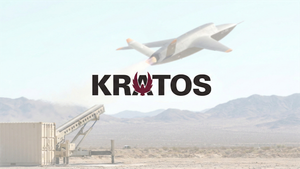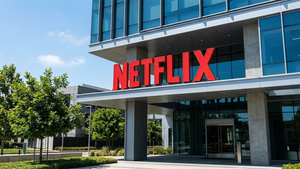Short Hills, New Jersey--(Newsfile Corp. - July 26, 2022) - Humanigen, Inc. (NASDAQ: HGEN) ("Humanigen"), a clinical-stage biopharmaceutical company focused on developing lenzilumab, a first-in class antibody that neutralizes granulocyte-macrophage colony-stimulating factor (GM-CSF), today announced a strategic realignment of its pipeline and resources to achieve key clinical milestones. The Company plans to accelerate the development of lenzilumab in chronic myelomonocytic leukemia ("CMML"), a rare blood cancer, for which the PREACH-M study is already underway. Humanigen will also advance its plan to study lenzilumab in acute graft versus host disease ("aGvHD") that occurs in patients undergoing bone marrow transplant, which will be the focus of the RATinG study that is expected to enroll its first patient in 3Q22. These studies are majority funded by our clinical partners.
As part of this realignment, Humanigen expects to significantly reduce its go-forward, cash-based operating expenses including elimination of ongoing lenzilumab manufacturing, significant reduction in other R&D costs, and some reduction in general and administrative expenses through headcount reduction as well as other initiatives.
Key elements of the strategic realignment plan include:
- Advancing and expanding the ongoing PREACH-M study of lenzilumab for the treatment of high-risk chronic myelomonocytic leukemia ("CMML") in patients with NRAS, KRAS, and CBL genetic mutations to more rapidly reach the initial clinical assessment of this open-label study once sufficient patients have received three cycles of treatment with lenzilumab in addition to azacitidine. Three patients have been enrolled in the study and followed for multiple cycles, all with encouraging results.
- The current standard of care for CMML are hypomethylating agents such azacitidine and decitabine, which historically have a complete response rate of 11%-22% according to the International Working Group Criteria.1,2,3
- Australian clinical partners plan to open additional sites in Australia and may also expand the study to centers in New Zealand.
- Humanigen plans to support expansion of the study to U.S. sites and has received approval from the Principal Investigator to share the protocol and provide monitoring to those additional sites.
The incidence of CMML in the US, UK, and Australia is about 1,700 patients annually.4 As a rare disease, lenzilumab may qualify for certain regulatory and commercial advantages that may accelerate development and approval. Humanigen and the Principal Investigator are assessing regulatory pathways that may enable early results to support a regulatory submission and potential approval by the Therapeutic Goods Administration in Australia, which could be expanded through Project Orbis to the United States and the United Kingdom.
There have been no new therapeutic agents for patients with high-risk CMML in 30 years5 and independent publications have demonstrated the key role of GM-CSF and RAS pathway mutations in this and other cancers, including juvenile myelomonocytic leukemia ("JMML"), myelodysplastic syndromes, myeloproliferative neoplasms, and acute myeloid leukemia.6,7,8 - A clinical protocol is also being developed for JMML with NRAS, KRAS, PTPN11 and/or NF1 genetic mutations
- Continuing to execute the RATinG study for lenzilumab for the early treatment of aGvHD with the goal of reporting a planned interim assessment of the first 20 patients in 2Q23
- The study is being run and funded primarily by the IMPACT partnership; a group of transplant centers located in the UK.
- Lenzilumab will be administered to patients that are identified as having markers for high-risk steroid refractory aGvHD, a population known to have four-fold higher mortality than those identified as low-risk using the same biomarkers.9
- Identifying and supporting further clinical assessment of lenzilumab for prevention of CAR-T therapy related toxicities through an investigator-initiated trial
- Phase 1 ZUMA-19 study completed and target dose defined for further study.
- Humanigen to provide lenzilumab to investigators free of charge to support investigator-initiated trials.
- Seeking potential inclusion of lenzilumab in international, large-scale COVID-19 platform studies through partnerships
- Planning to continue the development of ifabotuzumab, an EphA-3 targeted monoclonal antibody currently in phase 1 development, as part of an antibody drug conjugate, for certain solid tumors.
- Eliminating long-term debt on the balance sheet by fully retiring the Company's senior secured term loan, reducing interest expense, and enhancing our ability to generate additional liquidity from our intellectual property by freeing it from the loan's collateral requirements
"We remain committed to advancing the scientific effort to prove the clinical benefits of neutralizing GM-CSF in life-threatening conditions for patients and have had to take difficult though necessary measures to do so," said Cameron Durrant, Chairman and CEO, Humanigen. "Sharpening our in-house pipeline focus and partnering other resource-intensive programs may enable Humanigen and its clinical partners to rapidly derive important data in these indications. Our CMML, aGvHD programs are already primarily funded by partners and we hope to utilize a similar approach with our other programs, reducing our cash-based R&D expenses. We believe this strategic plan offers an opportunity to return value to our stockholders while providing hope to patients with serious and life-threatening conditions for improved outcomes."
About Humanigen
Humanigen, Inc. (NASDAQ: HGEN) ("Humanigen"), is a clinical-stage biopharmaceutical company focused on developing lenzilumab, a first-in-class antibody that binds to and neutralizes granulocyte-macrophage colony-stimulating factor. Humanigen is developing lenzilumab as a treatment for chronic myelomonocytic leukemia and acute graft versus host disease. Humanigen is also exploring use of lenzilumab to prevent toxicities associated with CAR-T therapy through investigator-initiated trials. Humanigen is also developing an antibody drug conjugate (ADC) utilizing its EphA-3 targeted monoclonal antibody ifabotuzumab ("ifab") for solid tumors. For more information, visit www.humanigen.com and follow Humanigen on Twitter.
Forward-Looking Statements
All statements other than statements of historical facts contained in this press release are forward-looking statements. Forward-looking statements reflect management's current knowledge, assumptions, judgment, and expectations regarding future performance or events. Although management believes that the expectations reflected in such statements are reasonable, they give no assurance that such expectations will prove to be correct, and you should be aware that actual events or results may differ materially from those contained in the forward- looking statements. Words such as "will," "expect," "intend," "plan," "potential," "possible," "goals," "accelerate," "continue," and similar expressions identify forward-looking statements.
Forward-looking statements are subject to a number of risks and uncertainties including, but not limited to, the risks inherent in our lack of profitability and need for additional capital; our dependence on partners to further the development of our product candidates; the uncertainties inherent in the development, attainment of the requisite regulatory authorizations and approvals and launch of any new pharmaceutical product; the outcome of pending or future litigation or arbitration; and the various risks and uncertainties described in the "Risk Factors" sections of our latest annual and quarterly reports and other filings with the SEC.
All forward-looking statements are expressly qualified in their entirety by this cautionary notice. You should not rely upon any forward-looking statements as predictions of future events. We undertake no obligation to revise or update any forward-looking statements made in this press release to reflect events or circumstances after the date hereof, to reflect new information or the occurrence of unanticipated events, or to update the reasons why actual results could differ materially from those anticipated in the forward-looking statements, in each case, except as required by law.
References
- Costa, R., et. al. (2010, December 23). Activity of azacitidine in chronic myelomonocytic leukemia. Cancer, 117(12), 2690-2696. https://doi.org/10.1002/cncr.25759. https://doi.org/10.1002/ajh.26455
- South Australian Registry data, South Australian Health and Medical Research Institute, April 14, 2021
- Pleyer, L., et. al. (2014, April). Azacitidine in CMML: Matched-pair analyses of daily-life patients reveal modest effects on clinical course and survival. Leukemia Research, 38(4), 475-483. https://doi.org/10.1016/j.leukres.2014.01.006
- Incidence extrapolated by applying American Cancer Society incidence rate of four per one million people to the population of U.S., UK, and Australia. https://www.cancer.org/cancer/chronic-myelomonocytic-leukemia/about/key-statistics.html
- Aim of first-ever CMML study - to improve survival. Leukaemia Foundation. (2021, October 11). Retrieved July 21, 2022, from https://www.leukaemia.org.au/stories/aim-of-first-ever-cmml-study-to-improve-survival/
- Gupta, A. et al. (2021, February 28). Juvenile myelomonocytic leukemia-A comprehensive review and recent advances in management. American Journal of Blood Research, 11(1), 1-21. Retrieved July 21, 2022, from https://www.ncbi.nlm.nih.gov/pmc/articles/PMC8010610/pdf/ajbr0011-0001.pdf
- Padron, E., et al. (2013, June 20). GM-CSF-dependent PSTAT5 sensitivity is a feature with therapeutic potential in chronic myelomonocytic leukemia. Blood, 121(25), 5068-5077. https://doi.org/10.1182/blood-2012-10-460170
- Emanuel, P. D., et al. (1991, March 1). Selective hypersensitivity to granulocyte-macrophage colony-stimulating factor by juvenile chronic myeloid leukemia hematopoietic progenitors. Blood, 77(5), 925-929. https://doi.org/10.1182/blood.v77.5.925.925
- Zeiser, R., and Blazar, B. (2017). Acute graft-versus-host disease - biologic process, prevention, and therapy. New England Journal of Medicine, 377(22), 2167-2179. https://www.ncbi.nlm.nih.gov/pmc/articles/PMC6034180/#!po=38.2353
Humanigen Investor Relations
Tim Morris
COO & CFO
tmorris@humanigen.com
650-400-6874

To view the source version of this press release, please visit https://www.newsfilecorp.com/release/131903





